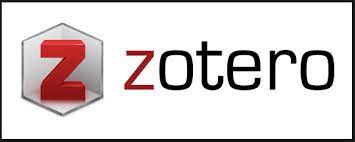EVALUATION OF PUBLIC POLICY IN THE EDUCATION SECTOR: HOW CAN PUBLIC ADMINISTRATION OPTIMISE THE USE OF EDUCATION FUNDS?
Keywords:
Evaluation, Public Policy, Education Sector, Public Administration, Optimisation of Use, Education FundAbstract
Public policy evaluation in the education sector plays an important role in ensuring the efficient and targeted use of education funds. This article discusses efforts to optimise state administration in managing the education budget through increased transparency and accountability, equitable distribution of funds, and collaboration between stakeholders. The study in this research uses the literature method. The results show that the implementation of a clear and accurate monitoring system, as well as the use of information technology, is crucial in minimising the potential for misuse of funds. In addition, the allocation of funds based on needs and appropriate priorities, especially in remote areas, will help achieve equality in education quality. Active participation from educational institutions and communities was also identified as an important factor to support the state administration in adjusting and refining policies, so that education funds can be maximally utilised to achieve national education goals.
Downloads
References
Abdussamad, Z. (2022). Qualitative Research Methods Book. Query date: 2024-05-25 20:59:55.
https://doi.org/10.31219/osf.io/juwxn
Arnadi, A., Aslan, A., & Mahbu, M. (2021). ISLAMIC RELIGIOUS EDUCATION TEACHERS' EFFORTS IN IMPLEMENTING THE 2013 CURRICULUM OF MADRASAH IBTIDAIYAH
SE-KKM 2 SAMBAS. Inspirational Education,10 (2), 247-256. https://doi.org/10.24252/ip.v10i2.18571
Banerjee, N. (2022). Globalisation and US Education Policy. Global Encyclopedia of Public Administration, Public Policy, and Governance, Query date: 2025-01-17 10:38:02, 5569- 5575. https://doi.org/10.1007/978-3-030-66252-3_3198
Bedi, I. K., Amanor, A. K., & Amedome, S. N. (2021). Evaluation of the State of Mental Health in Ghana: Policy, Practice, and Education. Global Encyclopedia of Public
Administration, Public Policy, and Governance, Query date: 2025-01-17 10:38:02, 1-8. https://doi.org/10.1007/978-3-319-31816-5_4165-1
Chaturvedi, S., Purohit, S., & Verma, M. (2022). Can New Education Policy 2020 Serve as a Paradigm Shift to the Employability Gap in India? Advances in Public Policy and Administration, Query date: 2025-01-17 10:38:02, 139-154. https://doi.org/10.4018/978- 1-7998-8243-5.ch009
Choi, S., & Chun, Y. H. (2020). Accountability and organizational performance in the public sector: Analysis of higher education institutions in Korea. Public Administration,99 (2), 353-370. https://doi.org/10.1111/padm.12683
Christopher, S. M., & James, L. N. (2020). HIV and AIDS mainstreaming in Ugandas higher education sector strategic direction: A case of Uganda Management Institute. Journal of Public Administration and Policy Research,12 (1), 1-7. https://doi.org/10.5897/jpapr2020.0464
Cotterill, S., John, P., & Johnston, M. (2023). How can better monitoring, reporting and evaluation standards advance behavioural public policy? Beyond Nudge, Query date: 2025-01-17 10:38:02, 172-194.
https://doi.org/10.1332/policypress/9781447369141.003.0009
Demirkasımoğlu, N., & Demir, T. G. (2023). Evaluation of Higher Education Policies in Turkey in the Context of Citizen-Centred Public Policies. Contributions to Public Administration and Public Policy, Query date: 2025-01-17 10:38:02, 367-384.
https://doi.org/10.1007/978-3-031-35364-2_20
Eriksen, A., & Katsaitis, A. (2020). Accountability through mutual attunement: How can parliamentary hearings connect the elected and the unelected? Public Policy and Administration,38 (3), 352-373. https://doi.org/10.1177/0952076720977606
Fayed, A. A. (2022). Education Corruption: Egypt. Global Encyclopedia of Public Administration, Public Policy, and Governance, Query date: 2025 01-17 10:38:02, 3583-
3587. https://doi.org/10.1007/978-3-030-66252-3_3604
Hayani, R. A., Yanto, S., Rahmat, A., Purnawirawan, A. C., & Aslan, A. (2024). LEADERSHIP EFFECTIVENESS IN ISLAMIC EDUCATION MANAGEMENT. Educative Scientific
Journal,10 (2), 136-148. https://doi.org/10.37567/jie.v10i2.3272
Irwan, I., Arnadi, A., & Aslan, A. (2024). DEVELOPING CRITICAL THINKING SKILLS OF PRIMARY SCHOOL STUDENTS THROUGH INDEPENDENT CURRICULUM LEARNING.
Indonesian Journal of Education (INJOE),4 (3), Article 3.
Juliani, J., & Aslan, A. (2024). THE BASICS OF CURRICULUM DEVELOPMENT: CURRICULUM
FROM THE ASPECTS OF IMTAQ AND IPTEK. International Journal Of Humanities, Social Sciences And Business (INJOSS), 3(2), 299–309.
JUNAIDI, J. (2021). ANNOTATED QUALITATIVE RESEARCH METHODOLOGY JOHN W.
CRESWELL. Query date: 2024-05-25 20:59:55. https://doi.org/10.31237/osf.io/6kt5q
Kurniawan, S., Sukristyanto, A., & Tjahjono, E. (2020). Evaluation of Public Policy of National Standard Education on Elementary School in Porong Sub-district, Sidoarjo
District. Journal of Public Policy and Administration,4 (3), 42-42. https://doi.org/10.11648/j.jppa.20200403.13
Lema, C. F. (2021). Entrepreneurship education and the professionalisation of higher education. Journal of Public Administration and Policy Research,13 (2), 20-31. https://doi.org/10.5897/jpapr2020.0475
Mariska, T., & Aslan, A. (2024). TECHNOLOGY-BASED CURRICULUM MODEL. International Journal Of Humanities, Social Sciences And Business (INJOSS), 3(2), 322–332.
Mullen, C. A. (2021). Corporate Networks' Grip on the Public School Sector and Education Policy. The Risky Business of Education Policy, Query date: 2025-01-17 10:38:02, 1-22. https://doi.org/10.4324/9781003108511-1
Ortynsky, S., Marshall, J., & Mou, H. (2021). Budget practices in Canada's K-12 education sector: Incremental, performance, or productivity budgeting? Canadian Public Administration,64 (1), 74-98. https://doi.org/10.1111/capa.12402
Rajagopal, K., & Mahajan, V. (2023). Governance Practices in Higher Education. Advances in Public Policy and Administration, Query date: 2025-01-17 10:38:02, 136-157. https://doi.org/10.4018/978-1-6684-6966-8.ch007
Sajida, & Kusumasari, B. (2023). Critical success factors of Public-Private Partnerships in the education sector. Public Administration and Policy,26 (3), 309-320. https://doi.org/10.1108/pap-11-2022-0127
Sartika, E., & Fransiska, F. W. (2024). UNDERSTANDING THE STUDENTS' ENGLISH LEARNING ACHIEVEMENT AND HOME ENVIRONMENT SUPPORTS DURING SCHOOL CLOSURE TO RESPOND TO THE PANDEMIC AT PRIVATE MADRASAH
TSANAWIYAH AT-TAKWA SAMBAS. International Journal of Teaching and Learning, 2(4), 939–953.
Tahirović, E., & Kuka, E. (2024). Education of Competent Personnel for Public Administration in Bosnia and Herzegovina. Journal of Public Policy and Administration, Query date: 2025-01-17 10:38:02. https://doi.org/10.11648/j.jppa.20240801.11
Tekel, E., & Su, A. (2023). Access versus Quality Trade-off: How Citizen-Centred Is the Public Policy Making in the Expansion of the Turkish Higher Education System? Contributions to Public Administration and Public Policy, Query date: 2025-01-17 10:38:02, 385-404. https://doi.org/10.1007/978-3-031-35364-2_21
Tubulingane, B. S., & Sikopo, O. (2023). Governance for Higher Education Robustness. Advances in Public Policy and Administration, Query date: 2025-01-17 10:38:02, 115-135. https://doi.org/10.4018/978-1-6684-6966-8.ch006
Veiga, A. (2022). Education Reform and Governance. Global Encyclopedia of Public Administration, Public Policy, and Governance, Query date: 2025-01-17 10:38:02, 3594- 3598. https://doi.org/10.1007/978-3-030-66252-3_1986
Vitálišová, K., Vavrúšová, M., & Vaňová, A. (2024). Education in Open Governance in Public Administration. Contributions to Public Administration and Public Policy, Query date: 2025-01-17 10:38:02, 333-347. https://doi.org/10.1007/978-3-031-67900-1_19
Warner, S. A. (2024). Affective governmentality and gendered labour in education policy: Sites of non-traditional coproduction. Public Policy and Administration, Query date: 2025-01-17 10:38:02. https://doi.org/10.1177/09520767241300822
Wekke, I. S. (2020). Qualitative Research Design. Query date: 2024-05-25 20:59:55.








